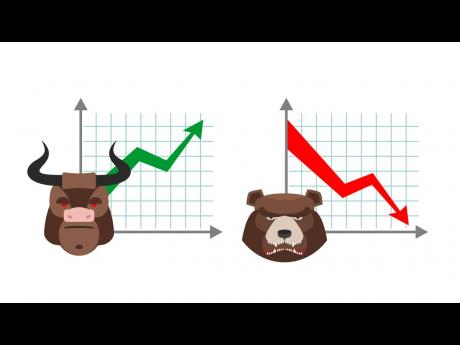Oran Hall | Understanding the money market
ADVISORY COLUMN: PERSONAL FINANCIAL ADVISER
The money market is the market for marketable financial instruments with a maturity of up to one year.
Some are issued by Government and some by corporations, but in our market, most are government-issued and are issued with various maturities, so there are, for example, 30-day and 180-day issues.
Investors who buy these securities are really lenders to the issuers of the securities, but these are low-risk loans because the term of the instruments is short and the credit rating of the issuer is generally good.
Governments are generally regarded as reliable borrowers, and the corporations that issue these instruments tend to be strong, well-established companies with a good reputation. The investors – or lenders – tend not to have much worry about receiving interest and principal at the end of the term.
The instruments are liquid as they are readily convertible to cash in two ways. First, the maturity is short, and second, these are marketable instruments and are generally easily sold, stockbrokers being the main agents involved in their trading.
The instruments are low risk because of the backing of Government in the case of the government issues, and in the case of the corporate issues, they are secured by the issuers, who, generally, have an excellent track record for repaying their loans.
Their returns tend to be below returns on longer-term interest-bearing securities largely because of their lower risk. On the other hand, their returns are superior to the interest earned on savings accounts.
Because there are instruments with various maturities, investors may structure their portfolio such that there are several maturities, thereby obviating the need to encash them before their maturity, but there is no guarantee that the maturities will exactly match the need for cash of the holders of the instruments.
The money market instruments that are most common in our market are treasury bills, commercial paper, and repurchase agreements.
Treasury bills are issued by the Bank of Jamaica. They are issued through a tender process.
Treasury bill auctions are generally held monthly, and it is possible for auctions to be held for more than one issue on the same day. It is also possible for auctions to be held on more than one day in the month. The results of the tender are announced on the day of the tender, but the treasury bills are issued a few days after the tender.
Use a broker
It is advisable to submit a bid through a stockbroker, considering that they have a good understanding of the market and the process.
When the bids are opened at the Bank of Jamaica, those that have the highest price and the lowest return are filled first. The tender is for a fixed sum, so the bids with the lowest price and highest return will be rejected in part or in whole if the issue is oversubscribed.
Treasury bills do not pay interest as we understand it. The bids are submitted at a discounted price, meaning that the bidder pays less than $100 for every $100 principal amount of the instrument. The instruments mature at the face amount, the $100 I just mentioned.
The income earned is the difference between the principal sum at maturity and the sum paid for the instrument. The brokers charge for their service, so that reduces the return to the investor.
In the case of a repurchase agreement, or repo, the borrower, generally the Government, sells a security and contracts to buy it back at a set future date, returning the principal sum and paying the interest agreed at the time the contract was entered into.
There is also the reverse repurchase agreement. In this case, a broker who has purchased a repo resells it to a third party and agrees to repurchase it at a specified date and pays interest at the time the contract was made.
The interest on repos and reverse repos is fixed for the term of the contract, and it is possible for the instrument to be sold to another investor through a stockbroker.
Commercial paper is an instrument used by companies to raise short-term funds. The borrower agrees to repay the principal at the end of the agreed period and to pay interest at the rate agreed. The rate is higher than on government instruments because of the higher risk but is lower than the rate the borrower would pay on a loan from a lending institution. This is primarily why companies issue commercial or corporate paper. Investors find them attractive because of their higher rate of return relative to other short-term instruments.
A money market account, which includes a pool of short-term instruments, is not a security as it is not marketable but is worth mentioning. The return is not fixed as it varies with the returns on the instruments that make it up
The make-up of the fund changes as new funds are added, funds are withdrawn, and new investments are made. Money market accounts pay a higher rate than savings accounts and funds can be readily withdrawn.
Money market instruments are a good alternative to savings accounts, and deposit accounts to a lesser extent, but they are short-term instruments that should not occupy an overpowering place in a portfolio.
Oran A. Hall, principal author of The Handbook of Personal Financial Planning, offers personal financial planning advice and counsel.

